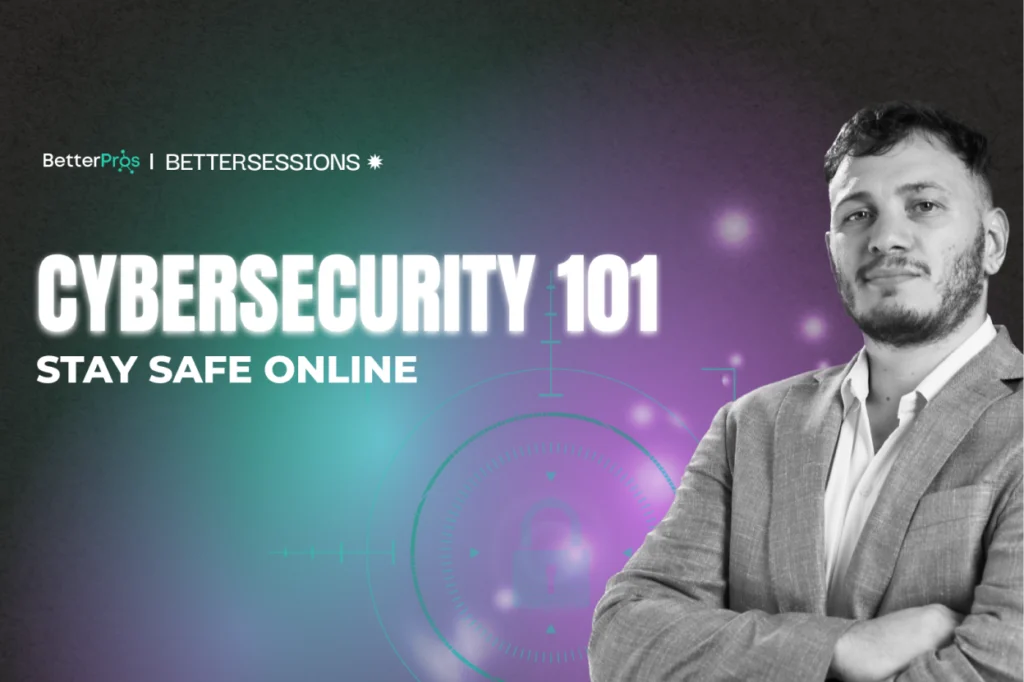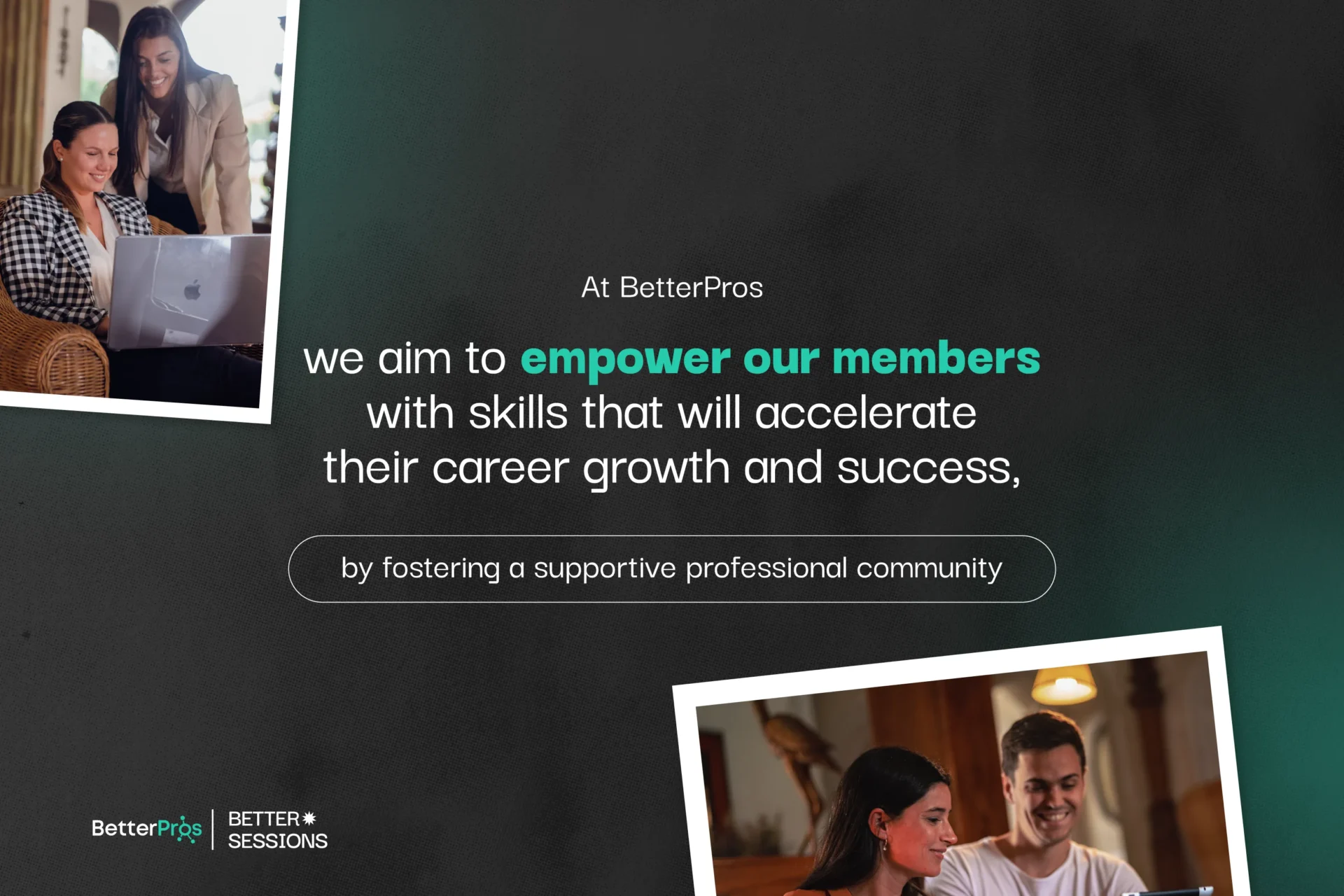Basic Cybersecurity to Protect Your Work: BetterSession #17
SHARE POST
Understanding the basics of cybersecurity and how to protect our work and that of our clients is crucial for daily routines.
Cybersecurity is the practice of safeguarding equipment, networks, software, systems, and data from potential digital threats. When working with clients, it’s essential to have basic knowledge that enables us to maintain a relationship of trust and meet their security needs. Discover how to prevent risks in the digital dimension with this new #BetterSession led by Julián Fuoco, our specialist within the #BetterTeam.
Yoda would say, “He who does not prevent, accidents has.” Just like in everyday life, prevention is more profitable than recovery.
This is a matter that concerns us all: according to the 2022 Global Risk Report, 95% of cybersecurity issues originate from human errors. Unlike cybercriminals, hackers are technology industry professionals seeking to improve systems and find solutions.
Building a Digital Shield to Navigate
In the digital world, we can visualize our security as a system with eight levels: seven technical layers and a final one that includes us as users. Social engineering is a technique used by malicious actors to manipulate people and obtain confidential information or carry out actions that compromise an organization’s security.
Instead of relying on technical vulnerabilities, social engineering focuses on exploiting human psychology and deceiving people into revealing sensitive information or taking harmful actions. It can involve deception, emotional manipulation, or the creation of fictitious situations to achieve its goals. This is a significant threat in the field of cybersecurity and requires awareness and education to prevent it.
What are the most common methods for applying social engineering?
1. Footprinting or Information Gathering
All the information we share on the web is publicly accessible, so we must be fully aware of what we share on the internet. Here are some of the tools used for gathering information:
You can discover how many places your data is located by clicking here.
2. Phishing/Scamming
Phone or email scams have become more sophisticated with the use of Artificial Intelligence tools. Before responding to any message, we must verify its source and pay special attention when connecting to a public, unsecured, or fake Wi-Fi network. You can check your networks by clicking here.
3. Eavesdropping/Man-in-the-Middle
People who eavesdrop on your online conversations. Public Wi-Fi is a common target. Use tools like Fing to check devices connected to your network and ensure they are all legitimate.
4. Data Encryption
Use strong passwords and avoid storing information in your browser. To protect your data, keep your software up to date. Your passwords should be diverse, combining characters. Avoid using master keys: combine patterns for different platforms and use password managers. Ideally, do not use the browser’s data-saving feature, and always check where you are connecting from. We also recommend having one email for everyday use and another for your transactions.
5. Malware and Viruses
Keep your antivirus and firewall updated on your devices. Avoid using multiple antivirus programs at the same time. We must keep our operating system up to date and properly configured. Avoid using cracked or outdated operating systems. Operating systems have an expiration date and lose support over time, so updates constantly appear. Keep downloads in massive or public sites under control and be aware of what you are downloading and how. Do not believe everything you read or see; when the product is free, you are the product.
The Cloud and VPNs
The web’s infrastructure consists of a set of computers. The cloud is a physical place where data is stored and can be either infected or protected. In today’s interconnected world, Virtual Private Networks (VPNs) are a vital defense. They are not antivirus, but they help protect your data.
Your digital security is essential when working remotely. Prevention is the key, and having information about how cybercrime operates can help you navigate safely. Take all the measures you can to protect your data and privacy in a rapidly growing digital world.
Final Tips for Your Digital Security
BetterPros by Your Side
This conversation about cybersecurity with Julián Fuoco was truly a great opportunity to discover how to prevent risks in the digital dimension.
This BetterSession #17 provided us with all the knowledge we needed to protect our work and that of our clients. Did you find it useful? We hope so! We have a team of experienced professionals that can help you achieve success within your budget.
We also offer several benefits, such as:
If you are considering outsourcing Administration services for your next project, we encourage you to contact BetterPros to learn more about our services and how we can help you.
Hit us up today for a free consultation!

